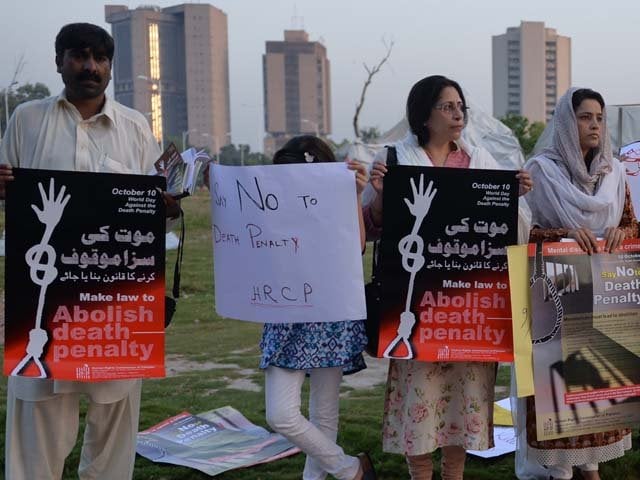
Is Uber the Saudi woman’s closest taste of freedom?
Reality is that Uber has possibly done more to set the Saudi woman free than any international debate or protest has.
I was 10-years-old when I saw something I had never seen before: one night, in a dark corner of the desert on the outskirts of Riyadh, my mom switched seats with my dad and got behind the steering wheel. My sister and I watched in awe as she began to cautiously accelerate. But, as the novelty of the situation coursed through her veins, with the sound of police sirens behind us, all excitement quickly abated turning into dread.
My dad nervously rationalised why he was sitting in the passenger seat with a woman behind the wheel in a country that, till this day, remains the only nation on earth where women cannot legally drive. In a combination of English, broken Arabic and gestures, he tried to explain how he was trying to train his wife in the basic skills of self-mobility because in a few weeks we would be immigrating to Canada.
In a country notorious for its brutality towards lawbreakers, this particular police officer left us perplexed. Giving us a guarded smile, he wished us luck, requested that we obey the law and drove away leaving us all sighing in relief in the middle of the Arabian desert. My mother would not dare to drive again until she was safely settled in Vancouver, BC, some thousands of miles away from the Kingdom.
Some 20-something years later, this memory resurfaced today as my social media timelines exploded with rage over Uber’s decision to accept a $3.5 billion cash infusion from Saudi Arabia.
While the irony behind Uber taking in billions in funding from a country that does not allow its women to drive does not escape me, I do not think anything shockingly out of the ordinary has happened in the world of business, politics, and basic economics.
Certainly, I don’t think that Saudi women would be behind the wheel had Uber chosen the moral high road instead of a purely capitalistic desire to become a global empire.
And, certainly, I believe that the people running Uber WANT women to drive. It just so happens that, unfortunately, after exercising pretty much all its options at acquiring capital, Uber chose a bedfellow that is both willing to pay handsomely and also perplexingly trapped in a skewed interpretation more relevant to the 11th century of Islam.
Whether the Saudis offered three billion dollars to Uber or not, truth of the matter is that Saudi Arabia would continue to be, for the foreseeable future, a country governed by religious leaders who believe that driving can have a negative impact on a woman’s ovaries. And, irrespective of America’s mighty grip on the international stage, an American tech company looking out for its corporate best interests in the form of a much-needed cash infusion does not, sadly, have the ability to single-handedly usher in change to a decades old policy that is centuries in the making.
We, Americans, typically hold in great contempt those of us who sell out to foreign interests. But, before we set fire to our stakes and set off on a social media fuelled anti-Uber witch hunt, let’s not forget the many companies, including Silicon Valley darlings Apple and Snapchat, who have chosen capital-generating opportunities by getting into bed with questionable regimes (i.e. China). Even for Uber – which has previously cozied up to the authoritarian, full of human rights abuses regime of Qatar – the Saudis are not its first time in bed with a Middle Eastern country.
With petrodollars turning into petropennies, oil-dependent Saudi Arabia is feeling the oil pinch. Using its sovereign wealth fund – a financial vehicle owned by the Saudi government – is crucial to the country’s wealthy existence. As Jayne Bok, sovereign advisor at consulting firm Towers Watson puts it,
“In the old days you built armies. Now you build a sovereign-wealth fund.”
In the good old days when oil wasn’t trading at less than the cost of the physical barrel itself, countries like Saudi Arabia kept their funds in low-risk, highly liquid investments. In the current market, oil-dependent countries like Saudi are more likely to turn to less-liquid assets such as real estate or buying bigger stakes in companies.
In fact, it is because the Saudis are feeling the oil pinch that it is choosing to inject funds into a business like Uber: profitable, with growth written in its future, and increasingly important to the world economy.
On paper, it is the perfect marriage. And, in practice (putting to the side, for a second, the country’s centuries-old record as an aggressively repressive regime, and its potential connection to terror plots on American soil), Uber will likely benefit the city, its drivers, and, most importantly, its riders.
For Saudi women leaving the house for work, or something as simple as picking up milk from the store, transit options are shockingly shoddy. A chauffeur, while a common fixture of some Saudi families, is an expense not readily available to the masses. When a woman chooses to walk out onto the streets to use public transportation (like a bus or a taxi) on her own, it is turned into an issue; criticising her for her ‘loose morals’.
Reality is that Uber has possibly done more to set the Saudi woman free than any amount of international debate or protest has.
Unleashed from the confines of her home, the Saudi woman can now, within seconds, decide who drives her, where he takes her, and what his ratings are. GPS technology adds an extra layer of security.
In fact, existing Saudi Uber drivers are full of stories of how the same female client often winds up using the same Uber driver multiple times throughout the day.
The need is strong. The demand is there. And Uber and other competing smartphone-based ride services are doing what any profit-minded business should and would do: provide a service, assist a segment of society in fully accessing said service, and, along the way, seek out cash infusions from where it can in order to continue providing the aforementioned services.
Sure, it would be nice to expect our homegrown businesses to demand that despicable regimes first become democratic and address all inequalities before they cozy up with them. But, if recent comments by the Saudi royal family are any indication, chances of a lift on restrictions, in the near future, is low.
As Saudi Arabia weans itself off its oil addiction, it is likely that deals like the one Uber struck this week will be plenty. In all probability, Uber has likely paved a path that other capital-hungry American companies will happily follow.
So, while Saudi women wait for self-driving cars to materialise forever and fully setting them free, I think back to that desert night 20 years ago when my mother finally found her freedom.
I then think of the frightening alternative. Had she, my sister and I not gotten a shot at the blue passports we hold in such high esteem today, what would we have done to mobilise and march alongside society? Surely, then, an app like Uber would have been our blue passport alternative, our only Godsend.




COMMENTS (2)
Comments are moderated and generally will be posted if they are on-topic and not abusive.
For more information, please see our Comments FAQ